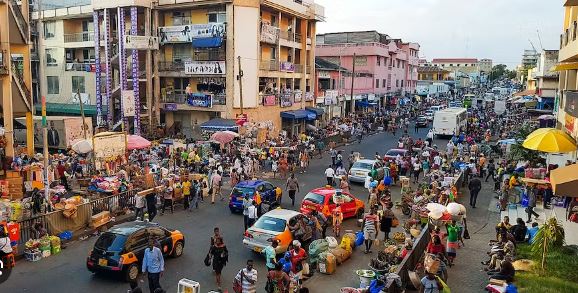Leading economists and policymakers gathered at the University of Ghana for the inaugural Quarterly Economic Roundtable, calling for urgent fiscal and monetary reforms to address Ghana’s persistent macroeconomic challenges.
The event, jointly organized by the Ministry of Finance and the Institute for Statistical, Social and Economic Research (ISSER), aimed to foster collaboration between academia, industry, and government in crafting solutions for Ghana’s economic woes.
In her opening remarks, Abena Osei-Asare, Minister of State for Finance, emphasized the importance of the partnership, stating, “We genuinely believe in the power of this partnership to guide our economic path. Through this, we are demonstrating that not everything needs to be done and led by us.”
The minister urged participants to deliberate with a “strategic focus on actionable recommendations” to drive economic development in the short and long term. She highlighted recent progress, including the restructuring of external debts with private creditors, but cautioned that risks remain.
“Our charge is simple and clear: to make this a trusted platform for structured national economic engagement and to change mindsets on economic management,” Ms. Osei-Asare declared.
Dr. Nii Kwaku Sowa, Country Director for the International Growth Centre (IGC-Ghana), painted a stark picture of Ghana’s macroeconomic instability. “The budget deficits have ballooned. There is a huge debt overhang. Inflation has been stuck in the double-digit zone,” he said.
Dr. Sowa emphasized that IMF bailouts are not long-term solutions, describing them as “emergency saving.” He called for a deeper understanding of the root causes of instability and the development of sustainable solutions.
Professor William Baah-Boateng, Head of the Department of Economics at the University of Ghana, focused on fiscal operations. He advocated for “prudent expenditure management” rather than outright cuts, suggesting a reduction of the dominance of politics in the economy.
“Politics is too heavy on the economy,” Prof. Baah-Boateng stated. “Government wants to provide everything. We need to start a conversation about reducing the strength of government and politics in economics.”
The Professor also highlighted the need to address revenue leakages and reassess the targets set for the Ghana Revenue Authority, noting that the agency consistently meets or exceeds its targets despite ongoing revenue shortfalls.
Professor Peter Quartey, Director of ISSER, delved into Ghana’s debt dynamics, tracing the country’s borrowing history and its current predicament as a high-debt distress nation. He emphasized the need to break the cycle of debt accumulation, negotiation, and forgiveness.
“We want to break from this cycle of debt accumulation, debt going to bankroll, debt reduction, and then coming back again,” Prof. Quartey said. He proposed several measures, including the establishment of a debt ceiling, revisiting the fiscal responsibility law, and creating a sinking fund to manage future debt obligations.
Prof. Quartey also raised thought-provoking questions about monetary policy, asking, “Should we print more money and avoid debt issues, or should we manage our debt and avoid the vicious cycle of poverty?”
Professor Agyapomaa Gyeke-Dako from the University of Ghana Business School addressed monetary policy dynamics, highlighting the challenges faced by the Bank of Ghana in balancing its primary mandate of price stability with secondary objectives.
“We need to bear in mind that this conflict exists amongst the objectives of the Central Bank,” Prof. Gyeke-Dako explained. She questioned whether the central bank could be blamed for the high interest rate environment and whether its approach to curbing inflation was appropriate.
The professor also sparked a debate on Ghana’s exchange rate regime, asking, “If we opt for a fixed exchange rate regime, are we prepared to sacrifice our independent monetary policy?”
As the roundtable concluded, participants agreed on the need for a comprehensive approach to addressing Ghana’s economic challenges. Key recommendations emerged from the discussions, focusing on improving efficiency in revenue collection without introducing new taxes, reassessing tax exemptions in sectors like mining and construction, and implementing stronger fiscal responsibility measures.
Experts also called for the creation of a sinking fund to manage future debt obligations, exploration of alternatives to the current inflation targeting regime, and fostering greater transparency and accountability in government spending.
Ms. Osei-Asare closed the event by reiterating the government’s commitment to collaboration and reform. “This platform will play a significant role as our economy continues its upward swing,” she said. “Together, we can restore macro-economic stability and build a more resilient future for Ghana.”
The inaugural Quarterly Economic Roundtable set the stage for ongoing dialogue and collaborative problem-solving, marking a potential turning point in Ghana’s approach to economic management and policy formulation.










